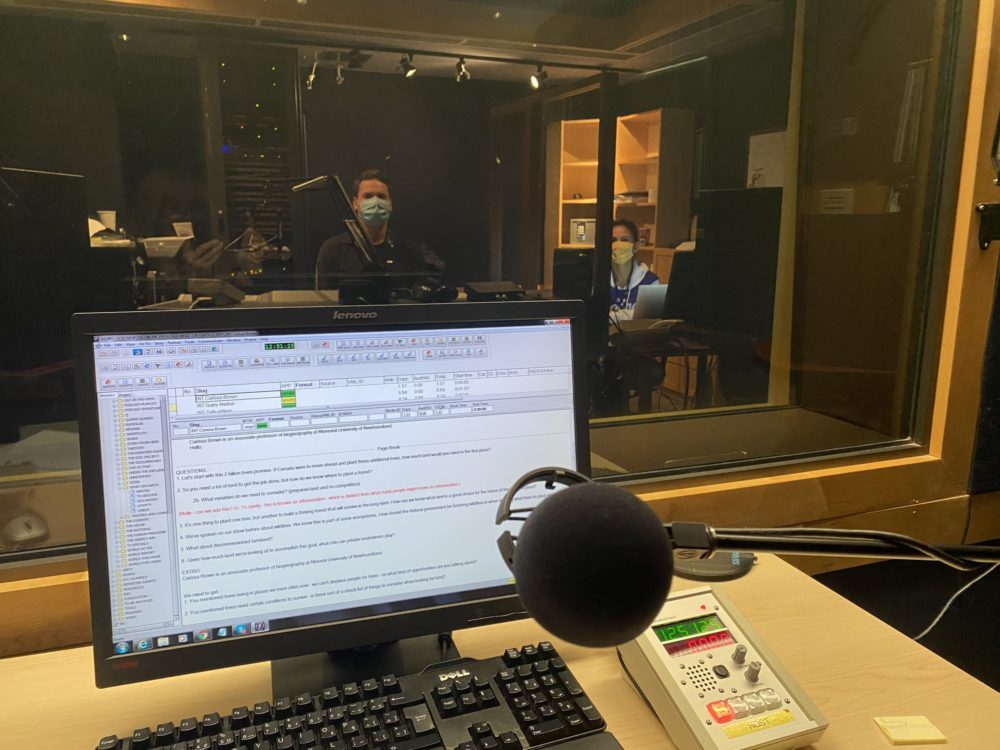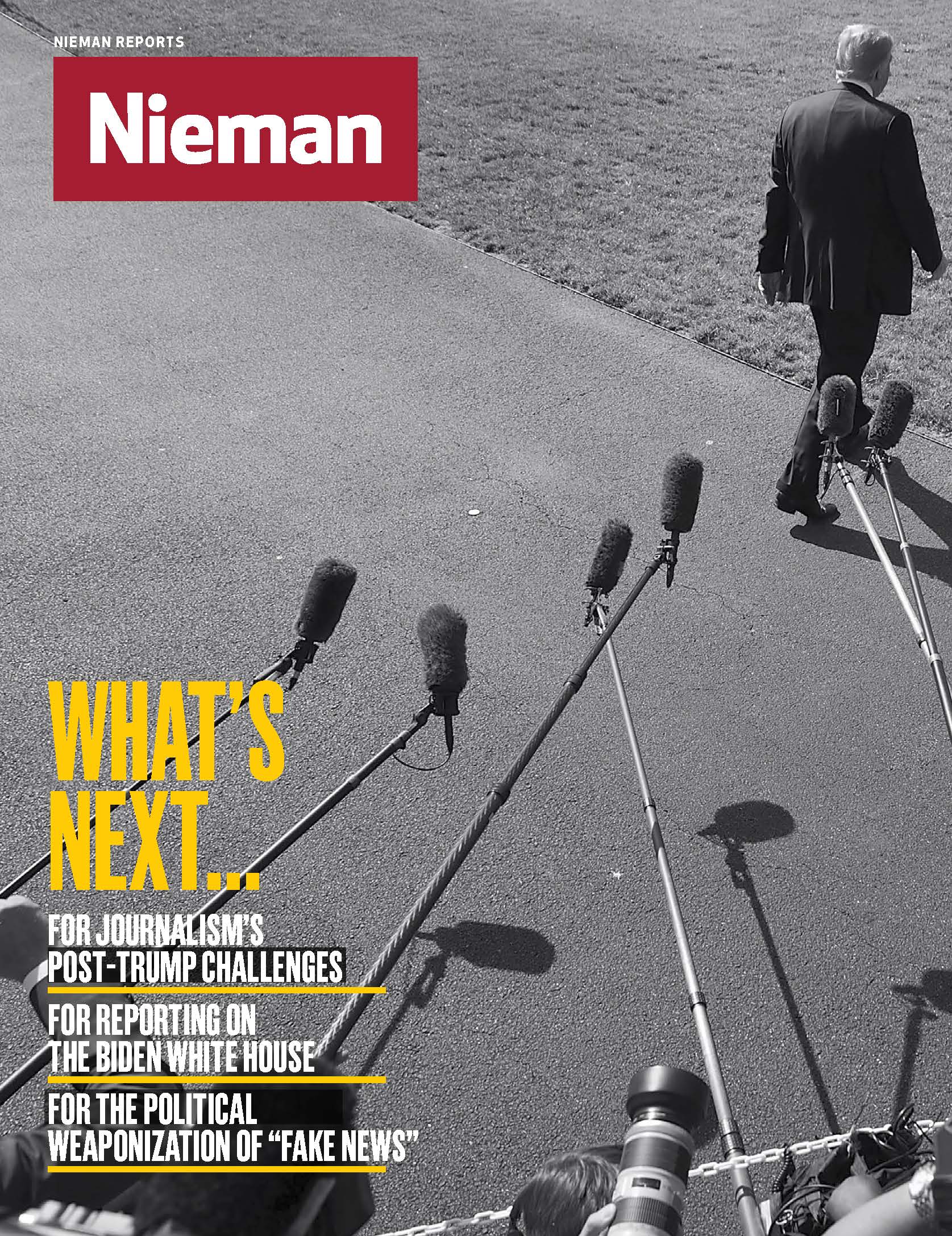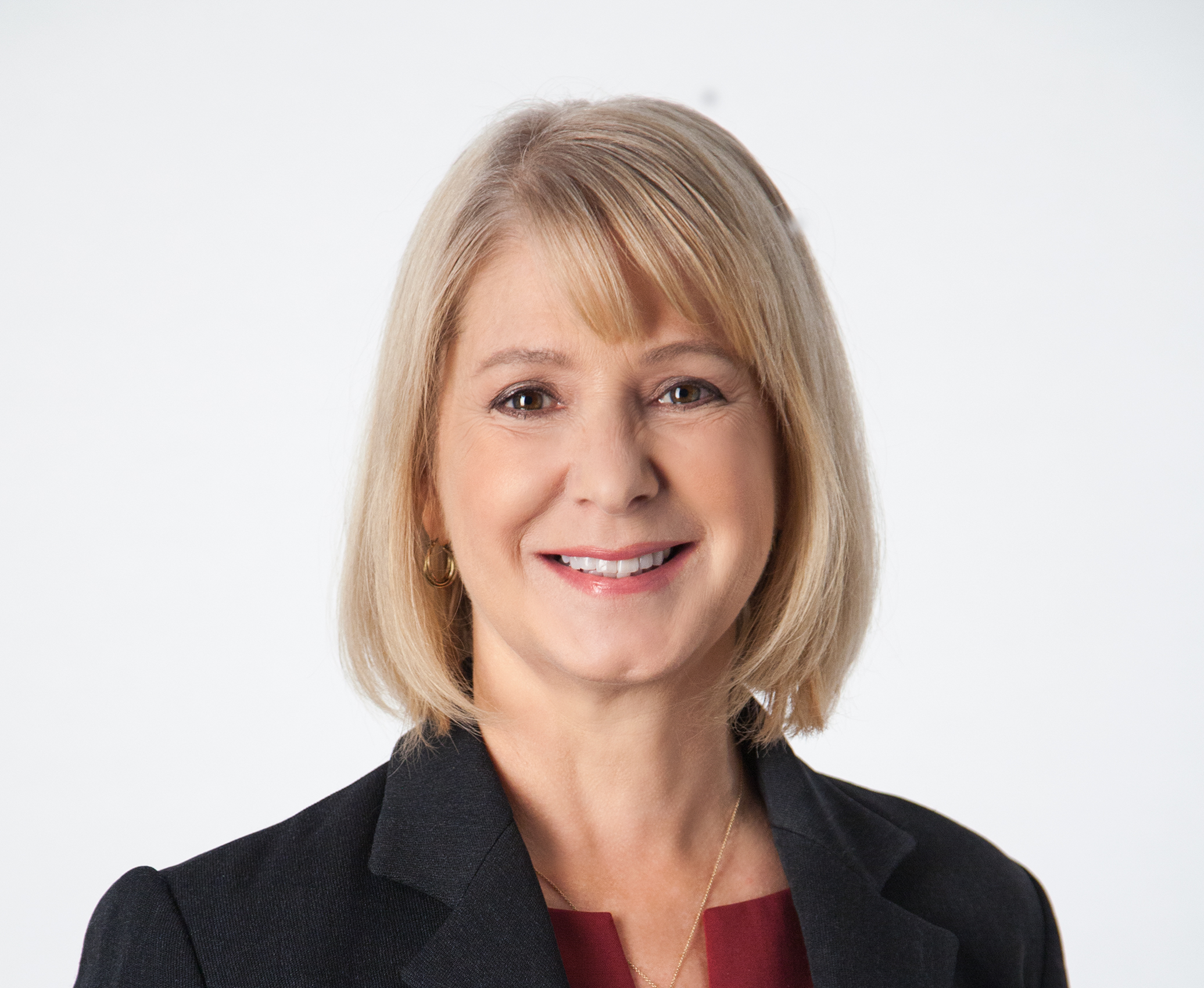
Engineer Matthias Wolfsohn (left) and senior producer Manusha Janakiram working on CBC's "What On Earth" podcast
With the new CBC podcast “What On Earth,” Laura Lynch, NF ’00, is bringing climate change coverage — and potential solutions — to Canadians.
The phone call came in May. The Canadian Broadcasting bosses in Toronto wanted me to follow through on a radio program proposal I pitched them back in January. I was taken aback. Having produced a pilot in February and having heard nothing, I knew news about the pandemic had obliterated almost all other current affairs programming.
Yet here it was: The chance I sought to create, produce, and host a network program dedicated to examining all aspects of climate change. There was just one catch: The show had to be up and running within six weeks. Despite the tight timeline and the fact that zero producers had been hired, it took just seconds for me to say yes.
I have faced challenges in my career, especially as a foreign correspondent dealing with hostile government officials, dangerous conflict areas, and men who thought female correspondents had little value. I thought embarking on this new project would be a breeze compared to all that.
And in some ways, it has been. “What on Earth” aired its first episode on July 4, focused on the pandemic and climate change. Those first weeks were a blur, ramping up a weekly program in record time, but we were eager to shape a summer series worth remembering. We looked at how Indigenous people can help shape a response to a changing climate, how nature is on the move as the planet warms, the growing threat of floods, and how to put decarbonization into practice, among other topics. Each week we promised our listeners that we would not only present a problem or a challenge, but we would scrutinize potential solutions. And we broadened our scope beyond science. We looked at climate change through the lens of the arts and considered other topics often not covered on the beat.
We did this all amidst the new challenges posed by the pandemic. Unable to congregate in person to plan shows, to invite guests into studios, or to quickly head out to record in the field, we adjusted on the fly, found new technology, and embraced all it had to offer — dealing with many technical hiccups along the way.
Then, with just about two episodes left to go, another call came. The show was being extended until the end of 2020, and perhaps even longer. So here we are, planning and airing more episodes, allowing Canadian listeners a chance to hear something new or different about climate change — the challenge we all face, and one that will outlast the pandemic.


